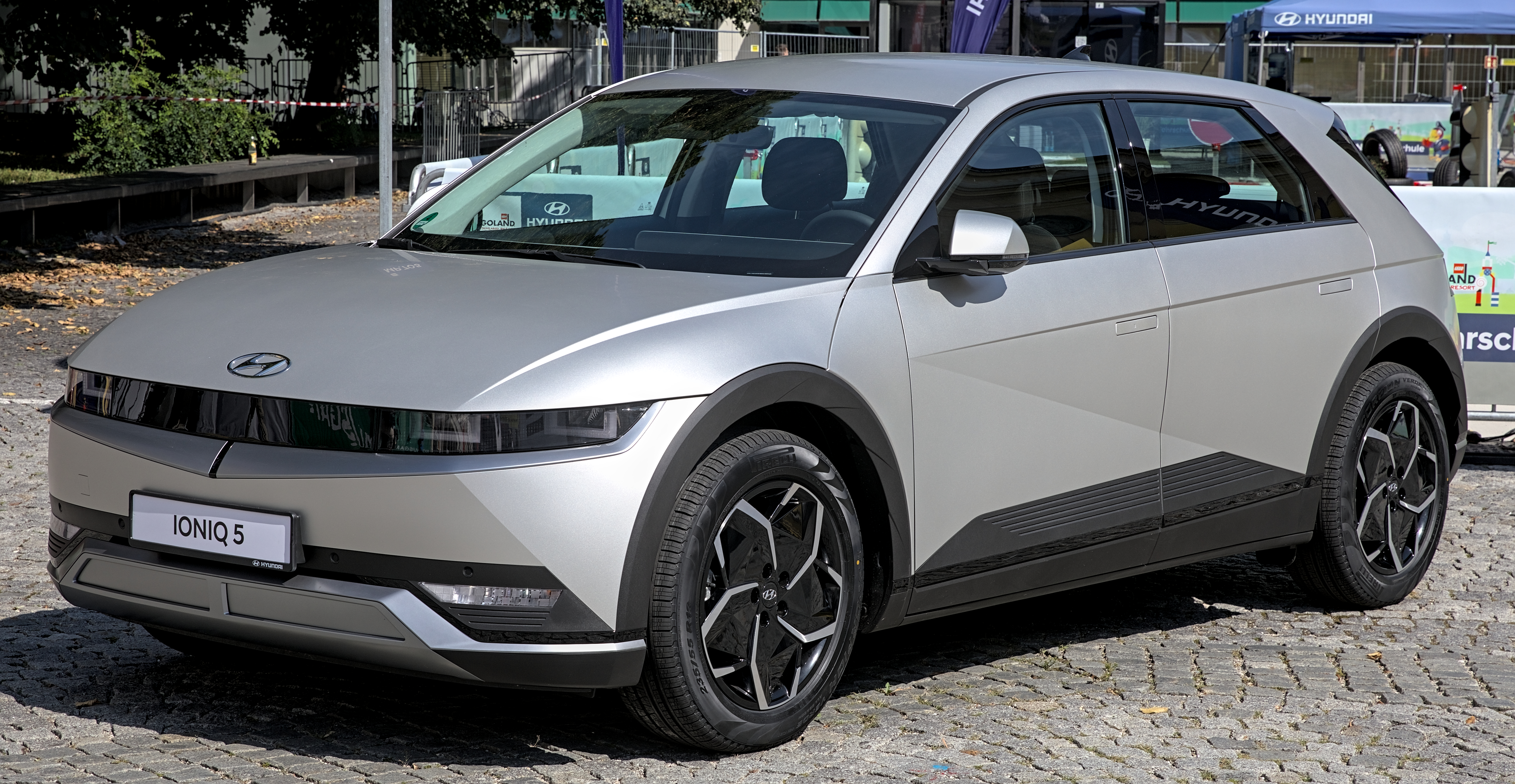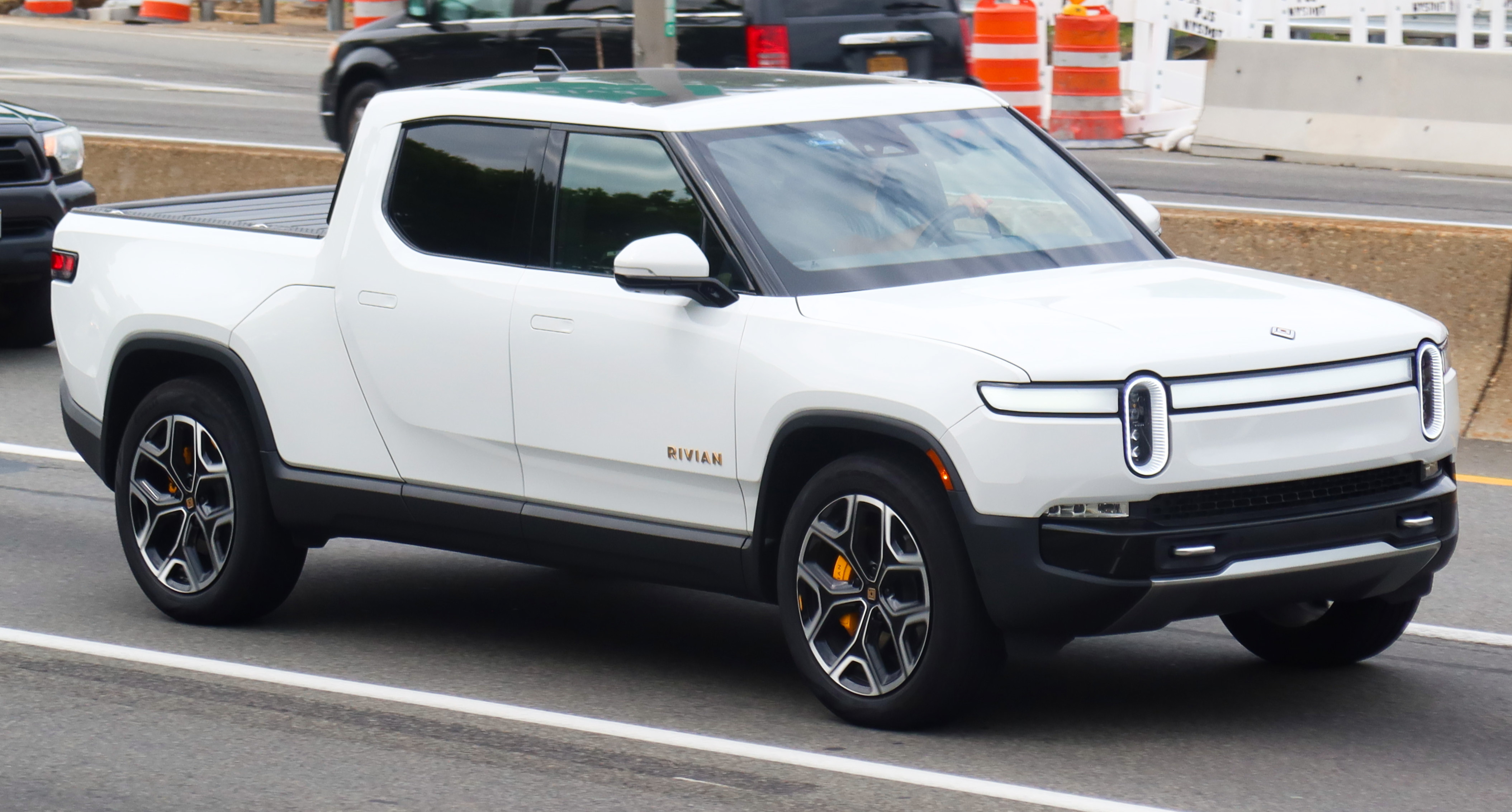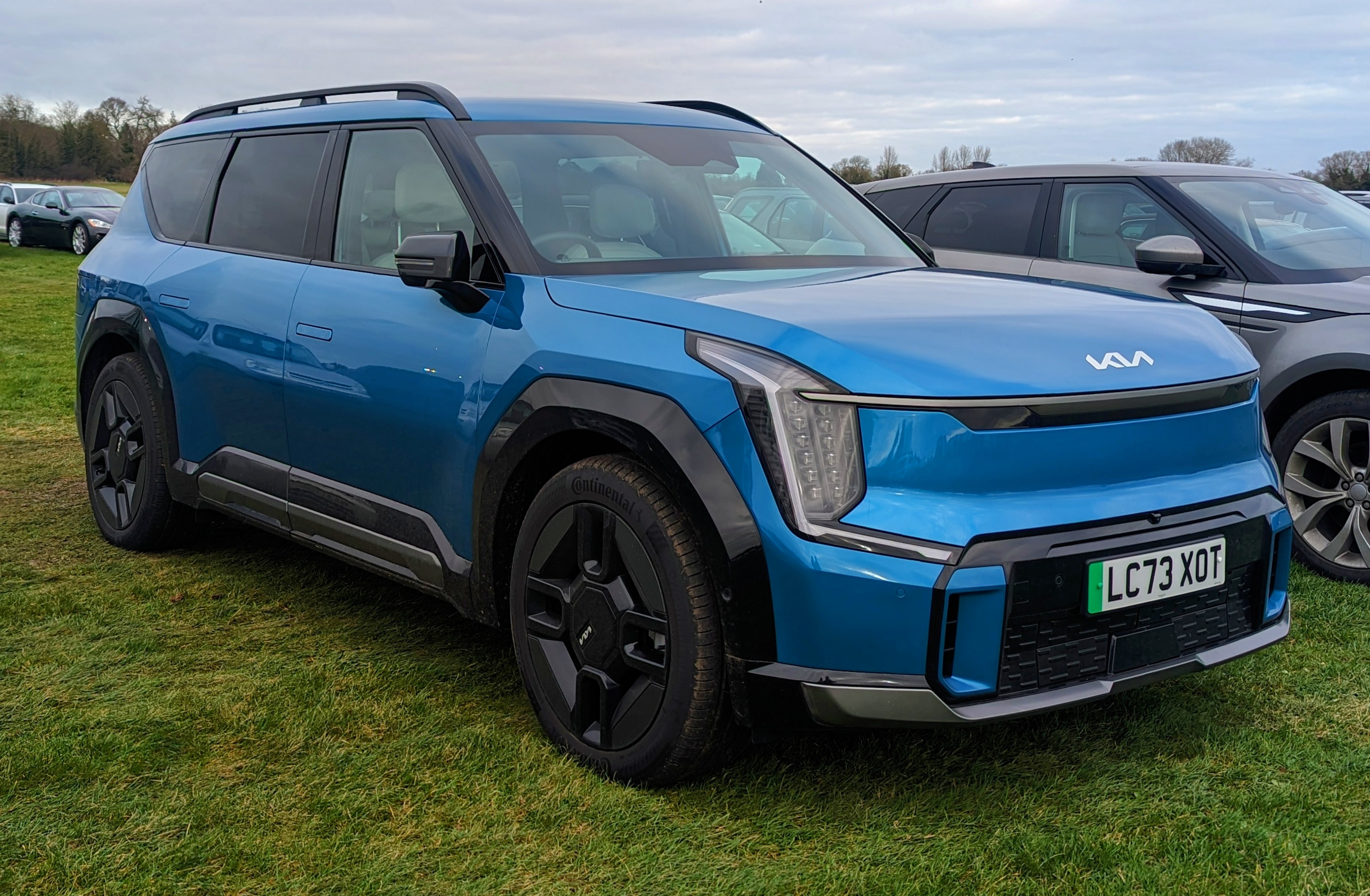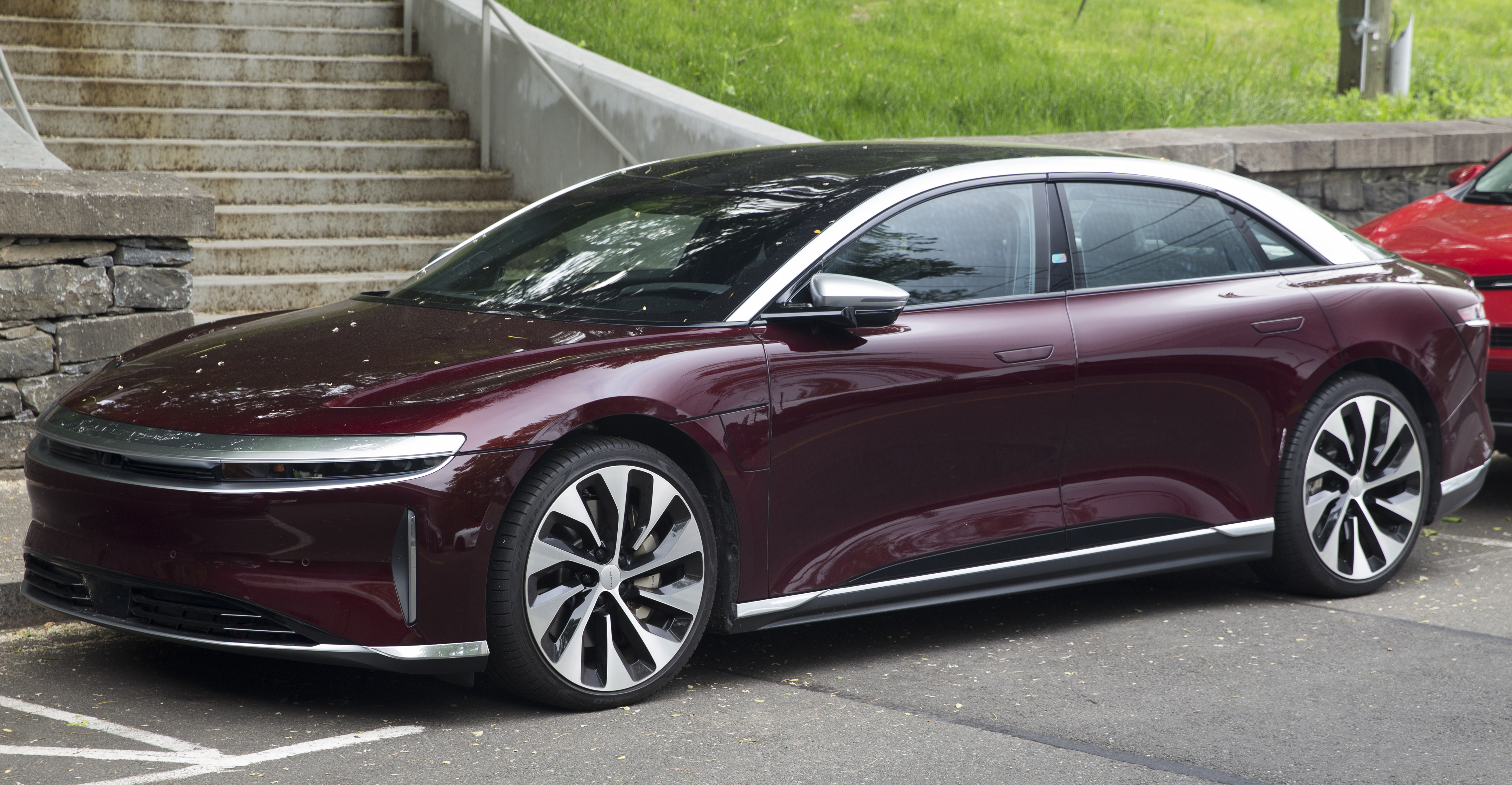
Electric vehicles (EVs) are revolutionizing the automotive world, and as they grow in popularity, the competition among brands is becoming fiercer than ever. Leading the charge are Tesla and its formidable rivals like Kia, Hyundai, and Genesis, each offering distinct advantages that cater to different consumer needs. For many buyers, the choice ultimately comes down to which brand aligns better with their individual desires for style, luxury, or performance. This article explores the compelling features of these automotive contenders, providing valuable insights into what differentiates each one in this exciting landscape.

1. **Tesla Model 3 Standard Range**: Considered a gold standard in the EV sector, the Tesla Model 3 Standard Range impresses with performance that appeals to a broad audience. With a starting price of $41,630, it’s not merely about being affordable; it’s also incredibly efficient, boasting a range of 272 miles and accelerating from 0 to 60 mph in just 5.8 seconds. Plus, the Model 3 benefits from access to Tesla’s extensive Supercharger network, making it a practical and reliable option for daily drivers who crave convenience and speed.

2. **Hyundai Ioniq 5**: This eye-catching EV has stolen the spotlight since its release, showcasing a stunning design paired with an impressive range of 303 miles. Starting at $43,195, the Ioniq 5 masterfully blends aesthetics with utility, featuring rapid charging capabilities and a tech-savvy interior that enhances the driving experience. It’s a vehicle that not only excels in performance but also prioritizes the comfort and modern conveniences that today’s drivers expect and appreciate.

3. **Rivian R1T**: The Rivian R1T is the epitome of adventure on four wheels. With a rugged design and a range of up to 420 miles, it’s perfect for those who crave outdoor exploration. Its starting price of $71,700 reflects its premium features, including unique storage options and advanced tech that enhances the driving experience. The R1T isn’t just an electric truck; it’s a companion for eco-adventurers who want to traverse the unbeaten path.

4. **Kia EV9**: For families in search of an electric SUV, the Kia EV9 is a fantastic pick. With three rows of seating and a starting price of $56,395, it’s crafted for urban life without skimping on style. The EV9 offers multiple configurations, making it a versatile solution for families that need space coupled with modern design. Additionally, its fast charging capabilities and advanced driver-assist technologies enhance its appeal for those who prioritize safety and efficiency.

5. **Hyundai Kona Electric**: For budget-conscious shoppers, the Hyundai Kona Electric is a compelling option. With a starting price of $34,070 and a respectable range of up to 261 miles, it aligns modern features with affordability. This compact SUV is perfect for urban driving while providing enough space and comfort for daily commutes.

6. **Lucid Air**: If luxury is the name of the game, the Lucid Air is hard to overlook. With a staggering range of up to 516 miles and a starting price of $71,400, it’s the most energy-efficient EV available today. The Lucid Air combines opulence with cutting-edge technology, making it a premier choice for those who want to travel in style and comfort.

7. **BMW i7 xDrive60**: BMW’s entry into the electric space is nothing short of spectacular. The i7 offers a luxurious experience with advanced tech features and ample power. With a starting price of $125,195, it’s aimed at those seeking a high-end electric vehicle that does not skimp on performance or luxury.

8. **Tesla Model Y Long Range AWD**: Building on the Model 3’s success, the Tesla Model Y caters to those who crave an SUV experience with all of Tesla’s cutting-edge technology. With an impressive range of 330 miles and a starting price of $51,880, it combines the spaciousness of an SUV with innovative features. Its roomy interior and practical elements make it a favorite among families and adventure-seekers alike, ensuring it remains a top choice in the EV market.

9. **Porsche Taycan GTS**: For performance enthusiasts, the Porsche Taycan GTS offers a thrilling experience. Priced at $140,950, it delivers on both speed and design. With a 0 to 60 mph time of just 3.5 seconds and dynamic handling, the Taycan is the perfect vehicle for those who prioritize driving pleasure above all else.

As we navigate through the distinct offerings from Tesla and its competitors, it becomes evident that the choice ultimately rests on individual preferences. Whether you lean towards Tesla’s performance and technology, Hyundai’s stylish practicality, or the luxury and comfort of Genesis and Rivian, the EV market has something to cater to every taste and requirement.

The electric car revolution is in full swing, and as consumers weigh their options, understanding the key differences between these brands will undoubtedly lead to more informed choices. The landscape is evolving, and with it, the opportunities for drivers to find the EV that aligns perfectly with their lifestyle aspirations. This competitive spirit is not just a battle for market dominance; it’s a race towards a sustainable and exciting automotive future.

10. **Performance Metrics That Matter**: When diving into the intricacies of electric vehicles, performance metrics stand out as crucial elements. Factors such as acceleration, handling, and overall driving dynamics can sway a buyer’s decision significantly. While Tesla models, like the Model 3 and Model Y, are known for their impressive acceleration and agility, competitors like the Porsche Taycan GTS offer a thrilling driving experience with precision handling that enthusiasts crave. Each vehicle showcases unique performance traits that cater to different driving styles, making this aspect a key point of consideration.

11. **Charging Infrastructure**: Charging convenience is crucial for electric vehicle owners, and Tesla leads the way with its extensive Supercharger network, offering swift charging options nationwide. Meanwhile, newer brands like Hyundai and Kia are quickly expanding their charging solutions, ensuring compatibility across various networks. As consumers consider their options, the availability of accessible charging stations can play a significant role in influencing their vehicle selection.

12. **Interior Comfort and Technology**: Interior features can make or break the driving experience. With brands like Genesis and BMW, luxury is at the forefront, offering plush interiors and state-of-the-art technology. For instance, the BMW i7 xDrive60 impresses with an abundance of tech features and comfort, while the Hyundai Ioniq 5 balances modern amenities with user-friendly interfaces. Buyers must consider what interior elements matter most to them, whether it’s high-end materials, spaciousness, or cutting-edge infotainment systems.

13. **Value for Money**: As the electric vehicle market grows, the balance between price and features becomes increasingly important for buyers. The Hyundai Kona Electric stands out for its affordability while still offering respectable range and daily driving tech features. In contrast, luxury models like the Lucid Air and BMW i7 deliver exceptional performance but come with a premium price tag. Determining what constitutes good value can differ among buyers, making it essential to evaluate the blend of features and pricing in the expanding EV landscape.

14. **Resale Value Considerations**: Resale value is a critical factor for many vehicle purchasers. Brands like Tesla enjoy a robust resale market thanks to their stellar reputation and performance metrics, setting them apart from the competition. At the same time, newer players like Rivian and Lucid are still building their resale value track records. Understanding how depreciation impacts future financial decisions can significantly influence purchasing choices, especially for those who prefer to upgrade vehicles frequently.

15. **Driving Range and Everyday Usability**: While performance metrics are exciting, the practical aspects of everyday usability cannot be overlooked. Many buyers look for vehicles that can comfortably meet their daily driving needs without frequent charging stops. EVs like the Tesla Model Y Long Range offer a balanced approach with a solid range of 330 miles, suitable for both daily commutes and longer trips. In contrast, models like the Rivian R1T, with a range of up to 420 miles, cater to adventure seekers who require extensive range for outdoor exploration.

16. **Ecological Impact**: As more consumers become environmentally conscious, the ecological footprint of their vehicle choice is a significant consideration. Electric vehicles, by their nature, present a more sustainable option compared to traditional gasoline-powered vehicles. Brands like Hyundai and Kia emphasize their commitment to sustainability throughout their manufacturing processes, which can resonate with buyers looking to make a responsible choice for the planet.

17. **Customer Support and Warranty**: The level of customer support and warranty coverage provided by automakers is another key element that can sway buying decisions. Tesla, with its direct-to-consumer sales approach, offers a unique customer service experience that many find appealing. Meanwhile, Kia and Hyundai are renowned for their extensive warranties, providing peace of mind when it comes to maintenance and repairs. Buyers should consider these aspects, as they can greatly affect the overall ownership experience for years to come.

The electric vehicle market is flourishing with a broad spectrum of options from Tesla and its competitive counterparts. Ultimately, selecting the right vehicle hinges on personal priorities and preferences, whether they lean towards luxury, performance, or design. By grasping these key differences and features, buyers can make well-informed decisions that resonate with their lifestyle aspirations. The dynamic world of electric vehicles is not merely about rivalry; it embodies a collective vision for a more sustainable and innovative future in transportation.
Related posts:
Best Electric Cars and EVs for 2024
I drove Mercedes’ $100,000 Tesla rival and loved almost everything about it except its controversial
I drove a $400,000 Rolls-Royce and a $140,000 Mercedes and found what the extra $260,000 gets you




.jpg/1200px-2014_Ford_Tourneo_Courier_(fl).jpg)